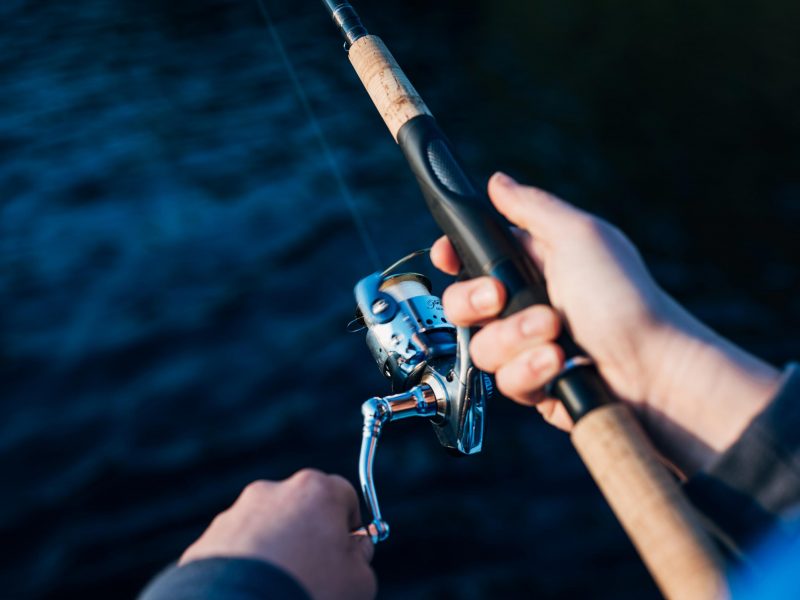Those of us who are passionate about eating clean and maintaining a clean lifestyle are mindful of where our food is sourced. Fish, especially tuna, has become one of those staples that many of us take for granted. Over time, the fishing industry has evolved from single-catch fishing to mass-catch methods that harm and discard so many animals in the process. When looking for seafood, we always seek out sustainable options. Many organizations are working with scientists, the fishing industry, and retail markets to protect and restore the oceans.
The pole & line fishing method uses a pole and a barbless hook to catch fish one at a time. The fish that are caught closer to the surface are usually younger and lower in mercury. Compared with other methods, pole & line is a more targeted catch method and far fewer bycatch fish (non-targeted species) are caught. If any bycatch fish happen to be caught, they can be released back to the ocean.
When shopping for canned tuna, we like to look for American Tuna brand, which is pole & line caught, sustainable, tested safe, and 3rd party audited. In fact, Whole Foods has partnered with American Tuna to introduce their Pole & Line Tuna brand.
There is a lot of research and information out there, so we’re listing a few resources we think provide a good source of information. We included some highlights about them from their websites.
The International Pole & Line Foundation (IPNLF) works to develop, support and promote socially and environmentally responsible pole-and-line and handline tuna fisheries around the world. IPNLF’s ambition is to contribute to thriving coastal fisheries, including the people, communities, businesses and seas connected with them.
Oceana seeks to make our oceans more biodiverse and abundant by winning policy victories in the countries that govern much of the world’s marine life. Oceana, founded in 2001, is the largest international advocacy organization focused solely on ocean conservation.
The International Seafood Sustainability Foundation (ISSF) mission is to undertake and facilitate science-based initiatives for the long-term conservation and sustainable use of global tuna stocks, reducing bycatch and promoting tuna ecosystem health.
Marine Stewardship Council (MSC) is an international non-profit organization. They recognize and reward efforts to protect oceans and safeguard seafood supplies for the future. MSC has been working with their partners for 20 years to protect the oceans and make it simple for you to choose sustainable seafood.
The Monterey Bay Aquarium Seafood Watch Consumer Guide helps you make sustainable choices when buying or ordering seafood. They list their “best choices, good alternatives and seafood items to avoid.” Have a look and download a copy for yourself.
Let’s do all that we can do to help save the world’s oceans. Sometimes it’s as easy as selecting one item instead of another.

